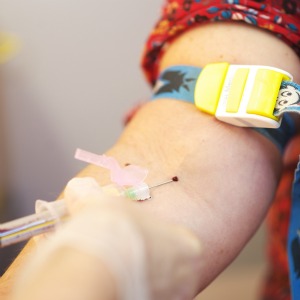NHS Devon CCG has saved £200,000 per year by introducing a framework to optimise blood test requests for chronic disease monitoring.
Optimising the ordering of blood tests for chronic disease monitoring in line with current guidance cut the rate of tests ordered from primary care without reducing the number of patients found to have serious pathology, according to the quality improvement report, published in the BMJ Open Quality.
Researchers in Devon identified that test ordering from primary care for disease monitoring purposes varied widely across the 20 general practices in the North Devon locality and was not always in line with NICE recommendations – including large volumes of requests for full blood counts and liver function tests not supported by published guidance.
The researchers developed test groups, standardised groups of blood tests for chronic disease monitoring that were developed in line with published guidance, and piloted their use in several practices. The groups and the way they were used were then refined during several rounds of optimisation forums with pathology and general practice staff.
The resulting framework was rolled out across practices in the locality in 2014 and included the introduction of disease-specific test groups that could be ordered electronically via a single-click system from primary care.
In the two years after the rollout, requests for full blood count tests fell by 14%, from 555 tests per 1000 patients in 2013 to 476 requests in 2016.
There was also a significant reduction in requests for liver function tests, falling by 22% from 436 requests per 1000 patients in 2013 to 338 requests in 2016.
There was no reduction in the number of tests flagging up serious pathology.
The researchers estimated that the switch to single-click electronic ordering and the reduction in number of tests cut annual testing costs in the locality by £200,000.
They said in the paper: ‘A systematic approach that aligns the use of common blood tests to valid clinical questions has produced significant reductions in cost, workload and harm, without a corresponding reduction in the identification of significant pathology. This has led to an overall improvement in service quality.
‘Our methodology is now embedded into the culture and governance processes of both the local laboratory and primary care, ensuring sustainability.’
Dr Tom Lewis, consultant medical microbiologist at North Devon District Hospital and one of the study authors, commented: ‘We think that GPs in other areas are keen to adopt a framework like this.
‘Barriers include things like not having reasoning explained and seeing it as just a cost-cutting exercise – engagement between secondary and primary care is a key part of what we’ve done.
‘Current guidance is also inconsistent as the evidence base is weak and testing guidance is often just thrown in as an afterthought with no clear consideration of benefits and harms. We have tried to get this raised at a national level but not really gained traction – it would be great to get the RCGP and Royal College of Pathologists pushing something on this.’
It follows news that CCGs have continued to offer cash rewards for GPs to cut referrals, according to a recent Pulse investigation.
Pulse October survey
Take our July 2025 survey to potentially win £1.000 worth of tokens












